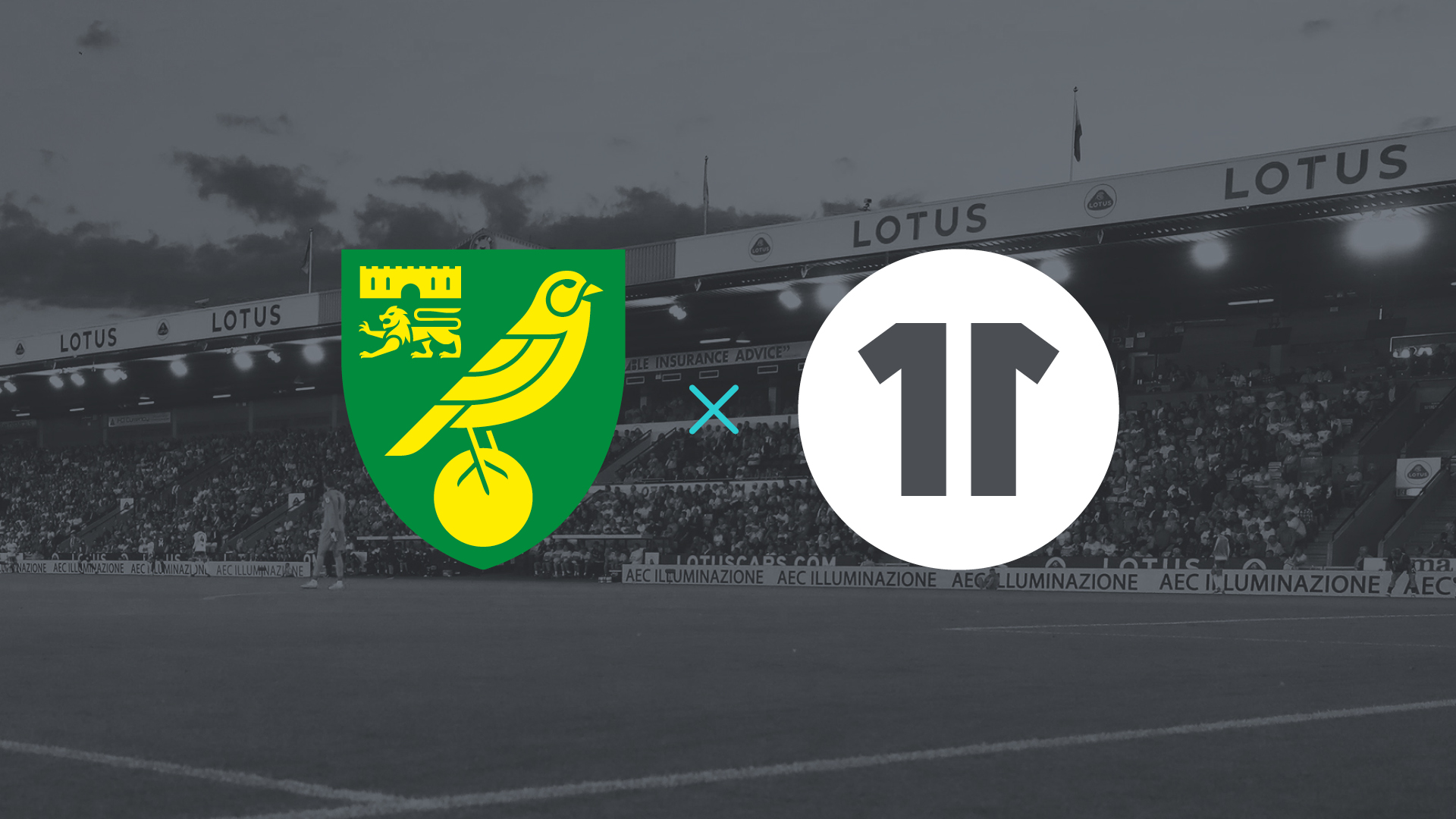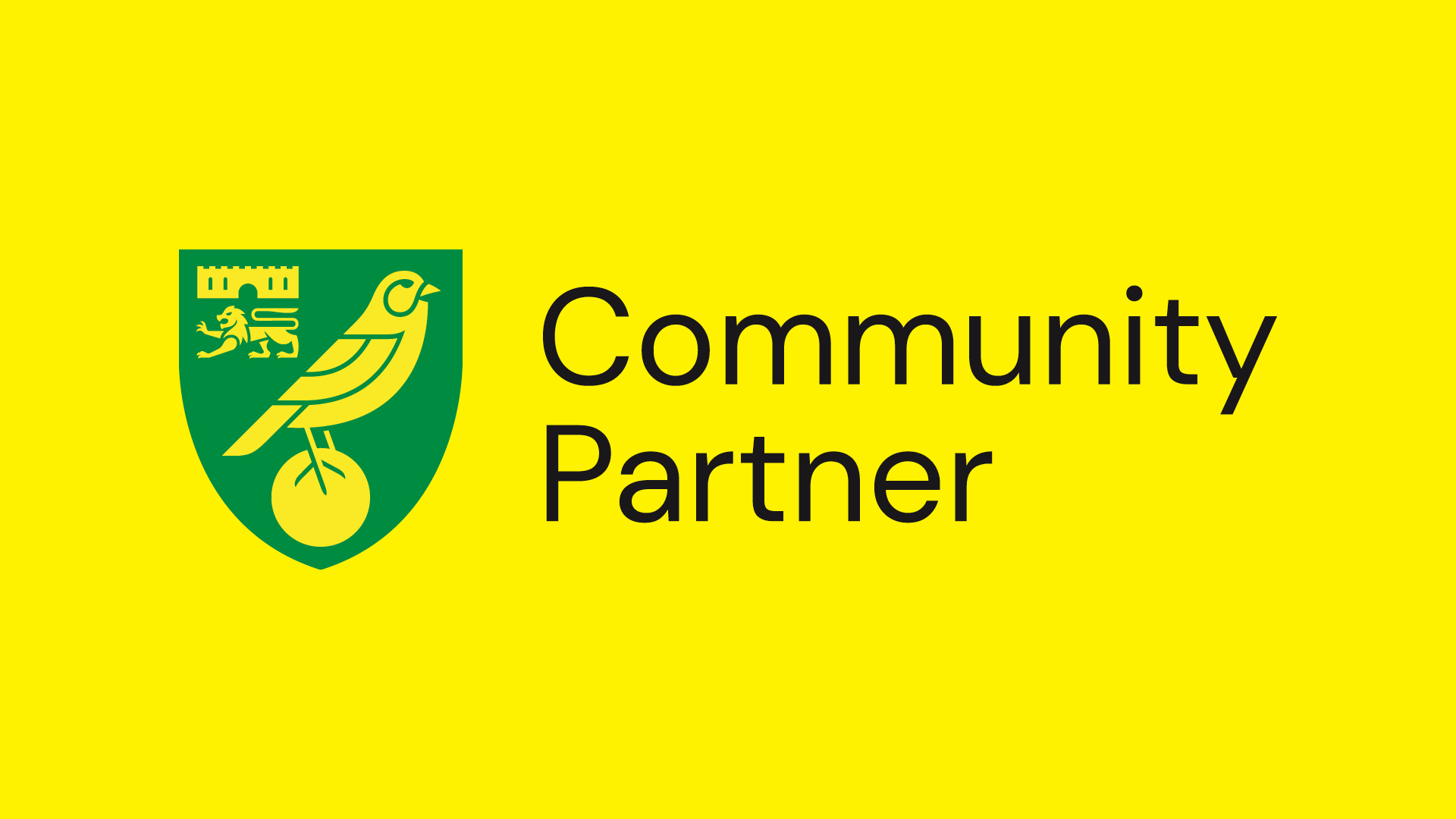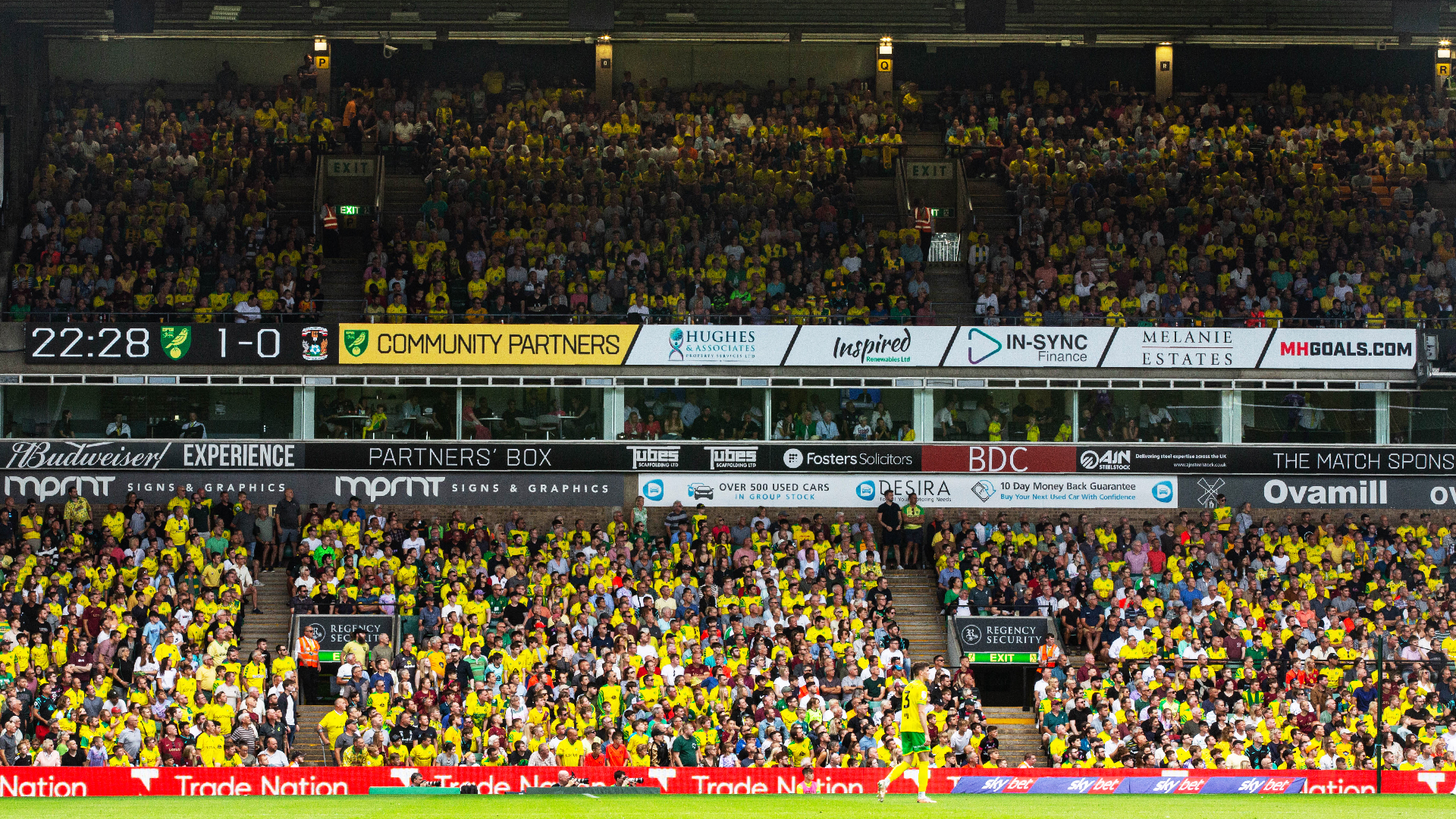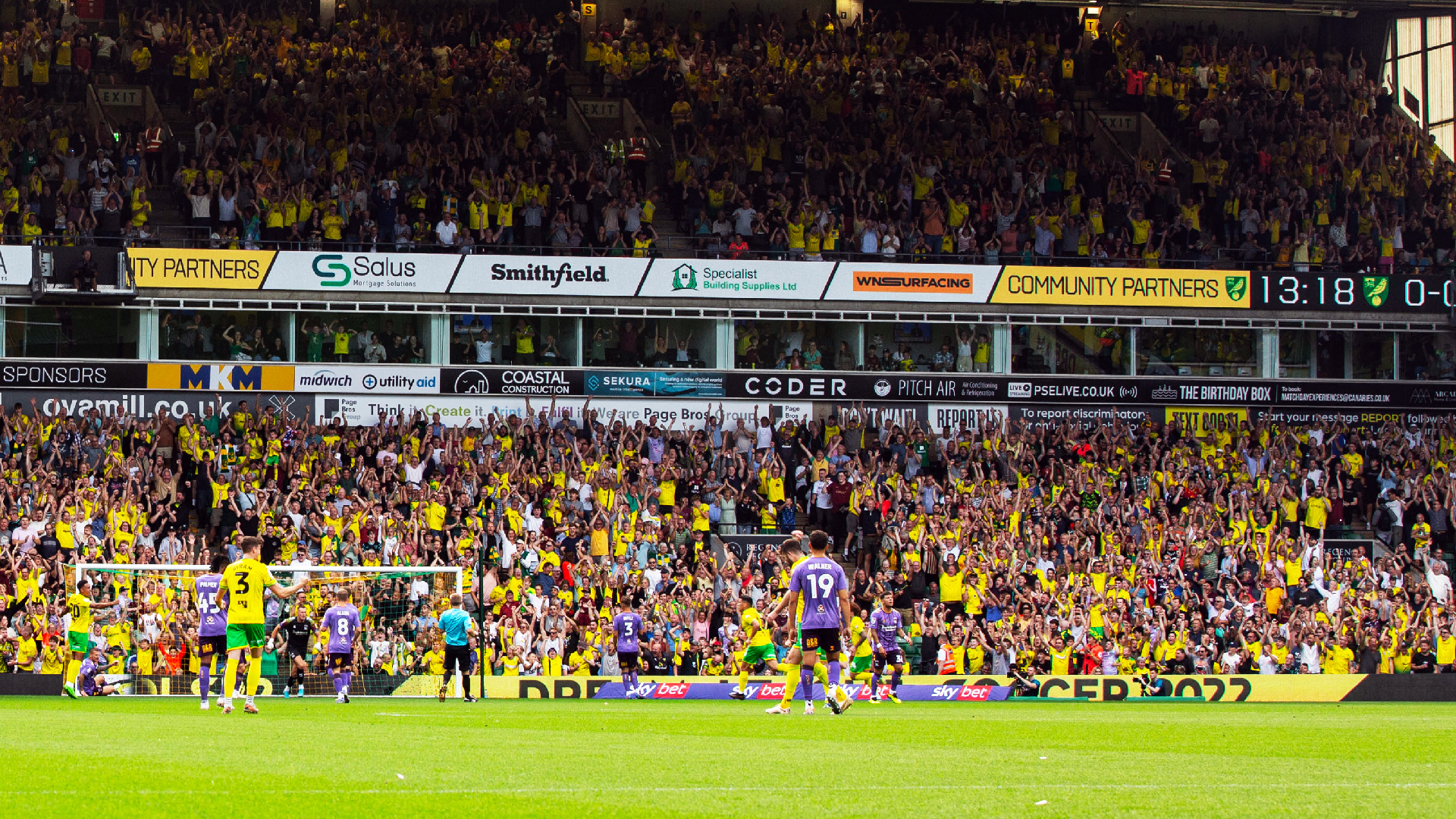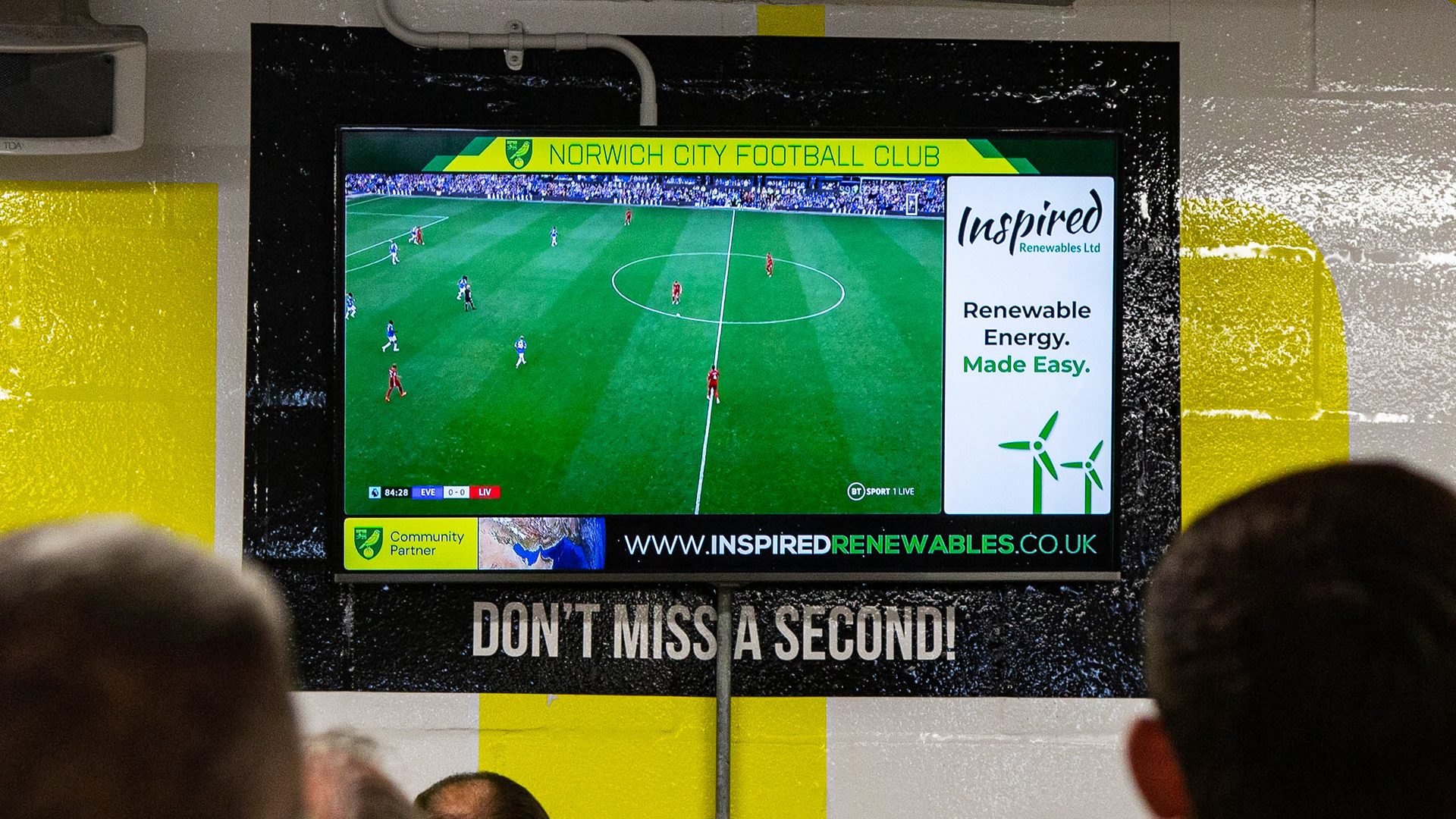Jonathan Casbon, Head of Partnerships at Norwich City, talks to us about the commercial opportunities in a one-club county and the importance of engaging the local business community
Norwich City is a unique football club. While most counties have several rival clubs competing for the support of the local fanbase, Norfolk is a one-club county. The Canaries’ bitter rivals, Ipswich Town, are 40 miles away, over an hour’s drive into a different county.
So Norwich City doesn’t just represent the city, it represents an entire county. And with Norfolk being the sixth largest county in England, it provides both a unique challenge and opportunity for the club’s commercial team.
While Norwich is a city buzzing with local businesses on the club’s doorstep, the sheer breadth of Norfolk can mean many companies don’t have the visibility or reach they would like. This is where Norwich City’s partnership strategy can provide a significant uplift to businesses that see the opportunities in aligning themselves with the power of sport.
Self-funded objectives
“As a one-club county, the wider business community in our city and county is vitally important,” says Jonathan Casbon, Head of Partnerships at Norwich. “That message comes from the club’s owners Delia Smith and Michael Wynn Jones, all the way through the board, the senior leadership team, and down through every member of the club. It is a part of us.
“Everybody’s fully aware of our commercial model as a self-funded club with a sustainable financial model, so the revenue generation that we pick up through our commercial operation is key to the continued development and performance of the club.”
Norwich’s self-funded model means it is particularly proactive in attracting partners. It gives them significant investment that is reinvested into the club, from improving infrastructure at Carrow Road and the Lotus Training Centre, to developing the next generation of talent through the club’s successful Academy
“Irrespective of a business’s size or ambitions to scale, our partnership strategy is very much centred around identifying what they want to achieve and providing value against that,” says Casbon. “I look at it in three ways: visibility, networking, and data.
“So it may be that a local partner is looking purely for visibility. As a Championship club with a wide following, we are in a unique position to be able to provide that to businesses in Norfolk. The second pillar is B2B networking. We have a portfolio of circa 50 partners across our Principal, Primary, and Regional partnership tiers, and an additional 30 Community Partners, who Eleven Sports Media facilitate. That’s potentially 80 different customers, business owners, and business decision-makers that we can put new partners into direct contact with.
“The third pillar is data. We help businesses understand who their audiences are, and then put their services in front of the right people and convert it, which has a direct correlation to upgraded sales and registrations.”
A partnership journey
Norwich’s four-tiered partnership structure creates a pathway for businesses looking to invest into the club in order to scale their sales and marketing objectives.
The first tier, the Community Partnership, gives businesses an understanding and a taste of what they can get from being aligned with a football club. Stepping up to Regional Partner brings a business into the direct networking circle the club can offer on both matchdays and non-matchdays. The third step, Primary Partner, delivers increased visibility on matchdays, including in-game advertising, access to the first-team squad, and support with filming, editing and delivering content across the club’s digital channels. The highest tier, Principal Partner, provides a greater volume of official rights and includes on-kit opportunities.
Lotus, one of the club’s three Principal Partners, has been based in Norfolk since its formation almost 80 years ago. Having a local, globally-recognised business as the club’s front-of-shirt sponsor sends a strong message of how important the local business community is to Norwich City, and shows local brands what can be possible.
“Our tiered structure creates a pathway for brands to come in at that starting level of Community Partner to dip their toe in and understand what works for them,” says Casbon. “The benefit of working with Eleven to bring in Community Partners is that they deliver for us a large set of warm leads to convert into the partnership portfolio. For us, that’s highly beneficial and allows our internal team to focus on those partners we understand to have the appetite to do more.”
Creating opportunities
One of the partners with an appetite to do more was Glazewing, an ambitious recycling business in Norfolk. The company entered sport sponsorship for the first time as a Community Partner of the club, and after enjoying a season of well-tuned partnership activation, has furthered its investment to become a Regional Partner.
“By moving up a tier, it has allowed them to get inside the inner networking circle,” says Casbon. “They get more individual partner rights as a Regional Partner, receive enhanced brand and networking opportunities, and now have increased visibility across pre-match and halftime digital assets at Carrow Road.
“It gives them a greater opportunity to grow, and many more opportunities to talk to their target audience.”
Stepping up a tier has given Glazewing a direct route into the club’s in-house partnerships team. Like most football clubs, Norwich City’s commercial team is small: its partnerships sales function consists of two people, and its partnerships delivery team consists of three. This is where Eleven provides significant value
“We’ve got a long-term partnership with Eleven Sports Media, and having a long-term partnership allows Eleven to understand how we operate, how a club presents itself to its local community, and how to best approach potential new community partners,” says Casbon. “Through their sophisticated process and data-driven approach Eleven support us by approaching appropriate businesses within the region to understand if there’s an appetite for a football partnership. They also support us in terms of their intelligent use of data, and understanding the opportunity that arises with a particular potential partner.
“They really allow us to scale our commercial operation. It enables our in-house team to focus on creating a funnel for Community Partners to move them up the tiers and invest more money into the football club.”

